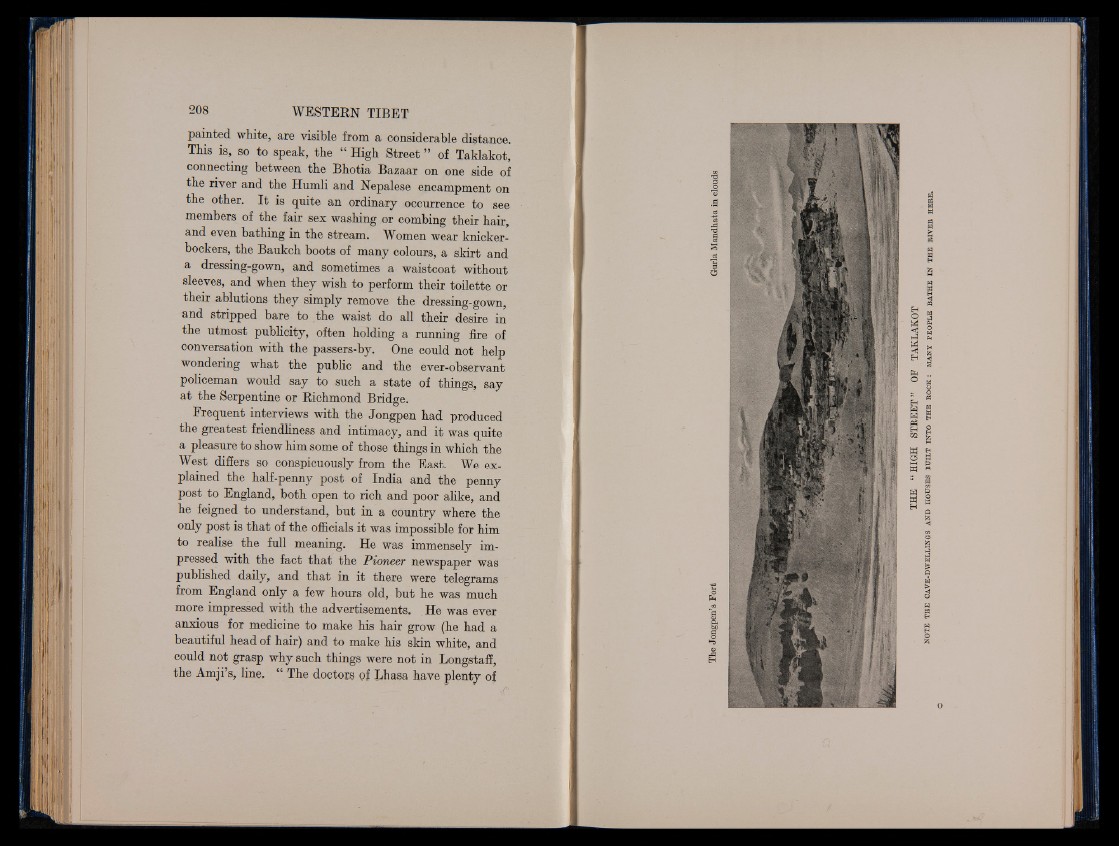
painted white, are visible from a considerable distance.
This is, so to speak, the “ High Street ” of Taklakot,
connecting between the Bhotia Bazaar on one side of
the river and the Humli and Nepalese encampment on
the other. I t is quite an ordinary occurrence to see
members of the fair sex washing or combing their hair,
and even bathing in the stream. Women wear knickerbockers,
the Baukch boots of many colours, a skirt and
a dressing-gown, and sometimes a waistcoat without
sleeves, and when they wish to perform their toilette or
their ablutions they simply remove the dressing-gown,
and stripped bare to the waist do all their desire in
the utmost publicity, often holding a running fire of
conversation with the passers-by. One could not help
wondering what the public and the ever-observant
policeman would say to such a state of things, say
at the Serpentine or Richmond Bridge.
Frequent interviews with the Jongpen had produced
the greatest friendliness and intimacy, and it was quite
a pleasure to show him some of those t hings in which the
West differs so conspicuously from the East. We explained
the half-penny post of India and the penny
post to England, both open to rich and poor alike, and
he feigned to understand, but in a country where the
only post is that of the officials it was impossible for him
to realise the full meaning. He was immensely impressed
with the fact that the Pioneer newspaper was
published daily, and that in it there were telegrams
from England only a few hours old, but he was much
more impressed with the advertisements. He was ever
anxious for medicine to make his hair grow (he had a
beautiful head of hair) and to make his skin white, and
could not grasp why such things were not in Longstaff,
the Amji’s, line, “ The doctors of Lhasa have plenty of